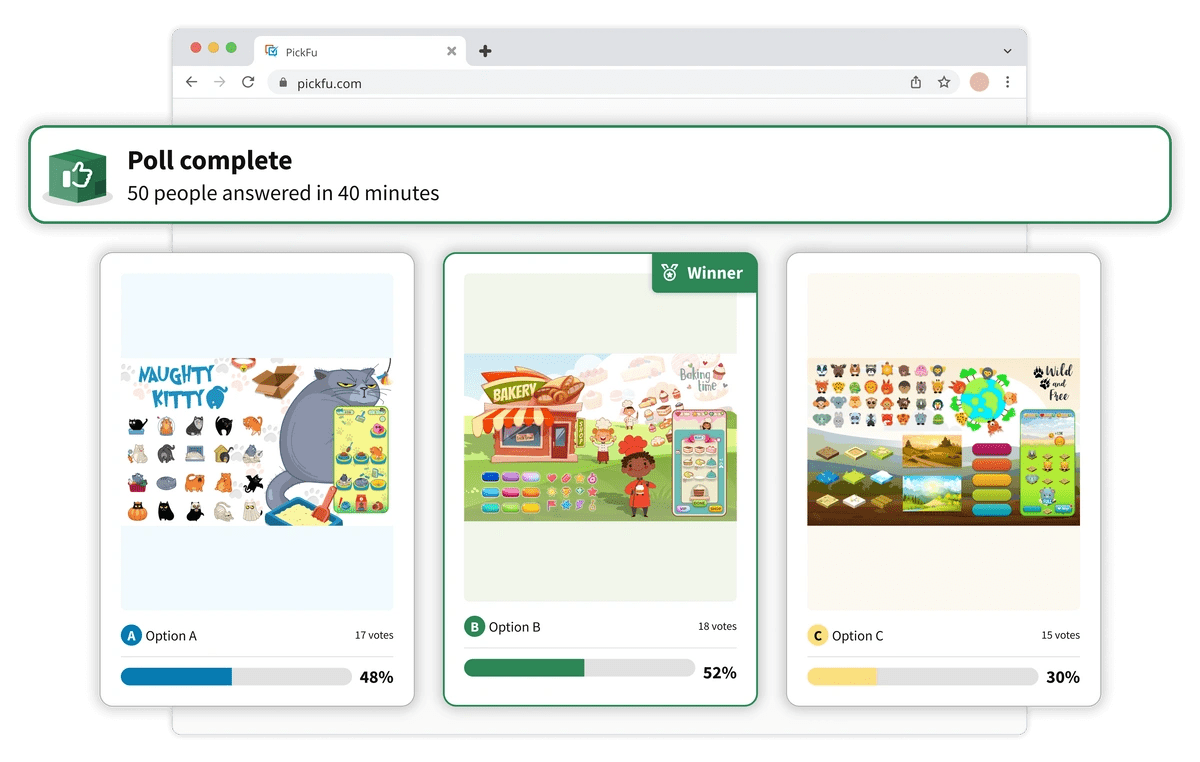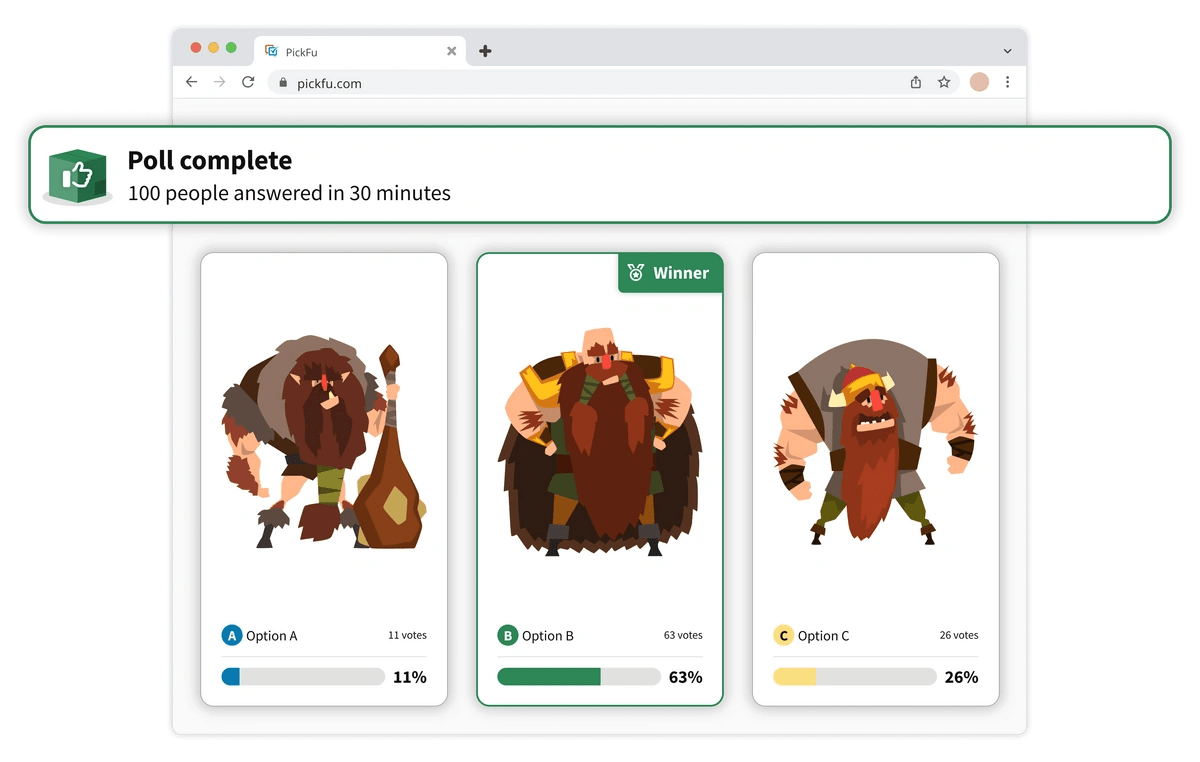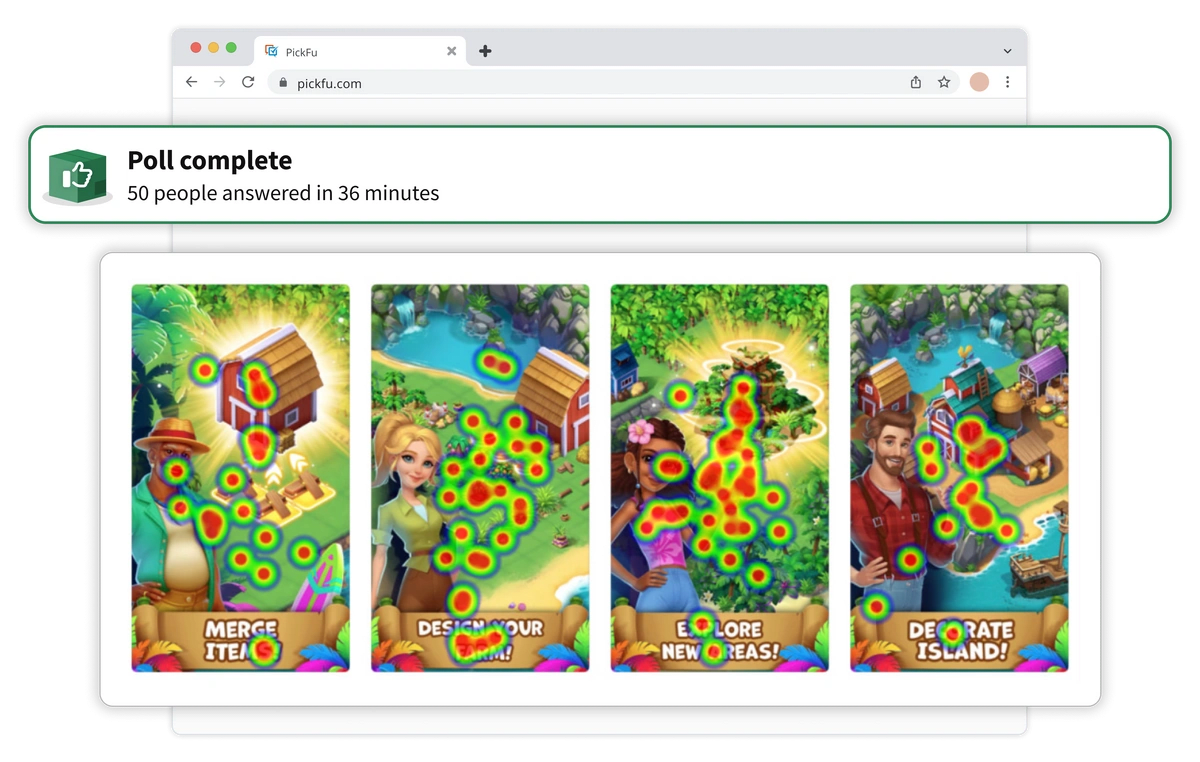From concept to development to launch, get consumer insights and player feedback at every critical decision point. Make data-driven game development choices that boost downloads and retention.
Validate game concepts, art styles, and character designs with your target players before investing in development. Use market research to identify winning game ideas that will resonate with your audience and reduce development risk.
Optimize gameplay mechanics, UI/UX designs, and monetization strategies with player feedback. Test different approaches during game development to find what engages players most and drives retention.
Maximize your game launch success with App Store optimization. Test icons, screenshots, trailers, and promotional assets to boost conversion rates, increase downloads, and improve player acquisition.
Create and launch your gaming poll in three simple steps. Get player feedback faster than traditional gaming market research methods.

Reduce game development risk with concept validation. Test game ideas, art styles, and themes with your target players to ensure your concepts will engage audiences before investing development resources.
Optimize character designs, animations, and personalities with player feedback. Test game characters and visual assets to ensure they resonate with your target audience and drive player engagement and retention.


Maximize downloads with App Store optimization. Test app icons, screenshots, descriptions, and promotional assets to boost conversion rates and improve your game's visibility in crowded app stores.
From indie developers to major gaming studios, see how market research and player feedback help create more successful games, boost downloads, and increase player retention.